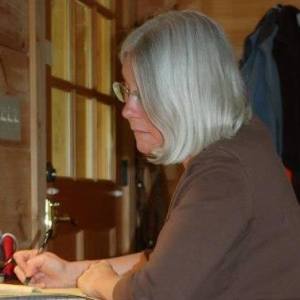The Nostalgia for Things Lost & A Tenderness for the World in Which We Find Ourselves
Winner of the 2020 Terry J. Cox Poetry Award

In December of 2019, I retired from the University of Georgia after over thirty years as an academic advisor. In that time, I worked at three different universities, sometimes advising students in pre-professional programs, but primarily with liberal arts majors in UGA’s Franklin College of Arts and Sciences—students studying languages, literature, theatre and film, religion, anthropology, women’s studies, history, resulting in conversations that animated and enriched my life and my writing. My last months were spent in hours of discussion with students and colleagues and concluded with a farewell gathering that included former and current colleagues, administrators, and a variety of faculty across the departments for which I advised.
I retreated to my “book fort” for the winter, almost literally hibernating with a stack of novels and poetry collections, and emerged only occasionally to poke a pen around a legal pad or go online to submit individual poems and my full-length manuscript. As an introvert in recovery from years of professional talking, I gave myself full license to sleep, read, nap, read, and catch up on a few Netflix series.
I began to wake as spring and Covid-19 arrived in Georgia and by mid-March found myself in full-on isolation with my husband, a retired high school teacher. Our church shifted from in-person to Zoom to YouTube, as our bishop (wisely) tightened restrictions on gatherings, weeks earlier than Georgia’s governor. Our city closed down large gatherings, then schools, bars, restaurants, again, long before the state at large. My book group and poetry group, “dinner women” and former colleagues withdrew to our homes, and our only “in real life” contact was with our pregnant daughter and her husband, who also isolated as much as possible. Soon after our grandson’s St. Patrick’s Day birth, our son-in-law had to return to work, so we spent weeks helping our daughter with our newborn grandson. It was both a mercy and a gift to immerse ourselves in the immediacy of an infant’s needs and to know that between us we could provide Christopher everything he needed – food, clean diapers, the occasional bath, constant human contact, the sound of our voices, our adoration.
Like all of us, I felt no such calm when I looked into the larger world and tried as much as possible not to imagine what horrors might loom, what this pandemic could mean for people I love and for so much of what I value in our world. I didn’t think often about my manuscript, circling through the round of competitions, or whether it would ever be published. When I did remember, I assumed the slim chance of publication had probably shrunk to next-to-none.
What a joyful shock to receive Jaynie’s email telling me that The Woman Who Lives Without Money had won the Terry J. Cox Poetry Award. What a gift to receive that news at a point when I could easily imagine no publisher having the courage or the financial foundation to continue to print books. And it is an equal gift to realize that Regal House Publishing shares my conviction that a life in the arts is, in some sense, a life of companionship and service. Like every writer I have ever known, I struggle with the tension between creation — a focus on the work itself — and the pull toward publication – sometimes warring impulses. The reality is that only a fraction of artistic work will ever receive recognition, that few of us – whatever our medium – will be able to live on an income from our art alone, that many far more talented writers than I will give up, ground under by the necessity of earning a living, by despair, by lack of an audience, by inability to live in uncertainty. Which is, of course, where we all live now.
In this unfolding world, perhaps we will learn that what seems most ephemeral (poems, stories, music, dance, theatre) and most fragile (the shell of my grandson’s skull beneath my cupped hand, the bloodroot petals unfolding in my spring garden, our ability to shelter those we love from harm, our desire to shelter those we do not know at all) are the essence of what it means to be human. I believe that in this moment there is nothing more worth doing than creating art and midwifing it into the world. I hope that readers find in The Woman Who Lives Without Money not only a nostalgia for things lost but tenderness for the world in which we live now and for whatever is coming next.

Rebecca Bagget is the author of poems, essays, and stories, published in numerous journals and anthologies, as well as four chapbooks, two of which (God Puts on the Body of a Deer, from Main Street Rag, and Thalassa, from Finishing Line Press) remain in print. She is a retired academic advisor from the University of Georgia and she has been a Fellow at the Virginia Center for the Creative Arts.




